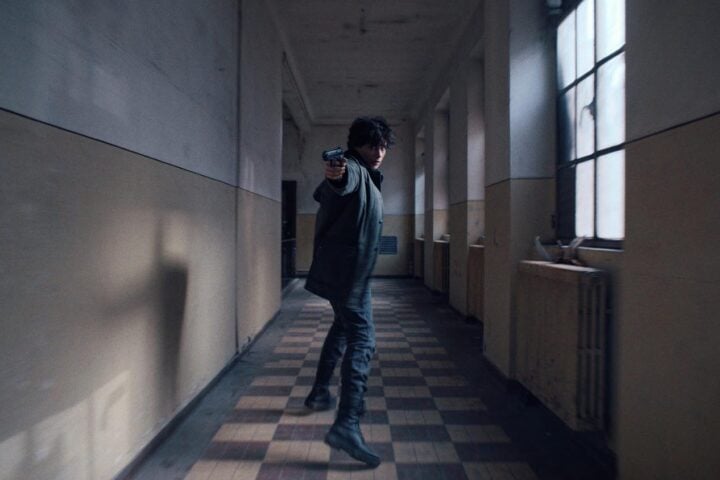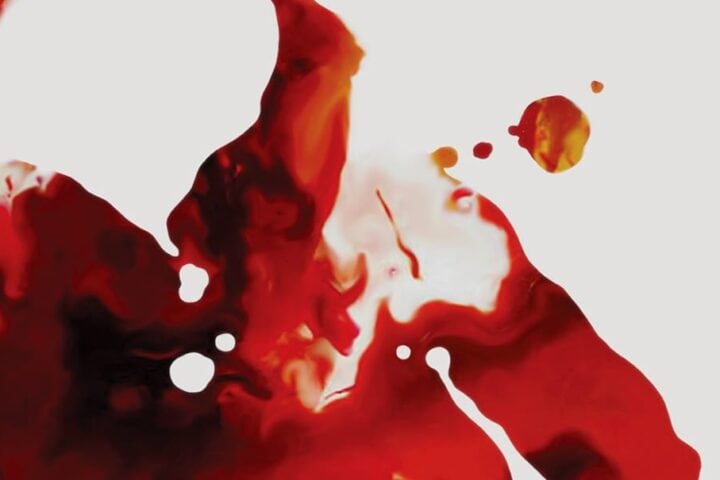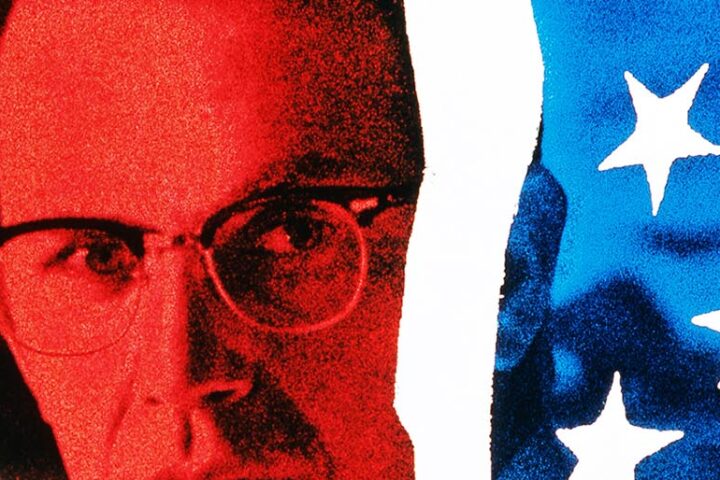There isn’t a conventional sound or image to be found in Robert Altman’s McCabe & Mrs. Miller, which exhilaratingly upends the audience’s senses, engaging one in a free-floating fashion that’s more in sync with the emotional effect of art with less intermediary filters than cinema, such as theater and live music. When McCabe (Warren Beatty) enters a bar in the early 1900s-era town of Presbyterian Church, stirring up the locals with his man-of-mystery routine, the filmmaker doesn’t drop accommodating and insidiously distancing breadcrumbs for the viewer, framing images so that they telegraph precise and unsurprisingly expository information.
Instead, this and other potentially standard-issue western scenes are charged with a jazz-like pulse of controlled spontaneity that would become an Altman trademark. We know as much as the bar denizens, and we’re encouraged to sort the setting and the protagonist out for ourselves. Vilmos Zsigmond’s camera prowls the bar for 10 minutes, surveying the locals in scruffily prismatic tableaus that are accompanied by absorbingly muffled and ambiguous noises, before we even hear McCabe’s name, and then it’s in passing and possibly a case of mistaken identity.
Named after the church that’s erected in the center of town throughout McCabe & Mrs. Miller, establishing a resonant demarcation between sin and conventional commerce (the brothel is on one side of the church, the store and bar on the other), Presbyterian Church is visually defined as a place cut out of the wooded state of Washington, existing in a bowl of land and wood and rock. Compared to the obliging alternation of wide shots, medium shots, and close-ups that comprise most films, McCabe & Mrs. Miller’s compositions seem to be too close in on the characters, reveling in the nits and grits of their hair and beat-up clothes, which often obscure the particulars of their identities. Or the camera might seem to be too far away from the action, offering topsy-turvy landscape shots that accentuate the labyrinthine geometry of the dirty, slushy woods and buildings. But Presbyterian Church is ultimately a coherent creation, as we feel as if we could map it out and discern much of its political infrastructure.
McCabe & Mrs. Miller’s power springs from its destabilizing mix of precise portraiture and epic scale, ugliness and beauty, cynicism and wide-eyed optimism. Moments of transcendence arise with disconcerting casualness, as the narrative is a vase that holds multitudes of smaller stories of nearly equal stature. Take the intimate bath shared between newly arrived prostitutes. Altman regards the women tenderly as they splash and play in water that moves in subtle slow motion, finding a moment of grace and camaraderie among the stifling lack of privacy that’s inherent in their trade. Then there’s the astonishing shot of Mrs. Miller (Julie Christie) when she first propositions a partnership with McCabe for his bar and brothel, looking out at Presbyterian Church through the window of his skeletal establishment, her head poking out while her body remains in the hollow structure. She seizes a moment for herself, her head seemingly floating in the sky, perhaps sensing and discarding the doom she’s conjuring.
Transitionary passages serve as wellsprings of operatic exaltation throughout, such as when McCabe rides back to Presbyterian Church with his first group of prostitutes as Leonard Cohen’s “Sisters of Mercy” reaches its chorus on the soundtrack, while the sun peaks at its magic hour, dotting the stark terrain with heavenly watercolor light. This moment is rooted in character as well: We intuitively grasp McCabe’s weird naïveté, as he exploits people with an almost childlike sense of glee, simultaneously earning our contempt and admiration. When Mrs. Miller flees her room in the middle of the night, as her and McCabe’s business is imperiled by our country’s rigged über-capitalist machinations, she descends a rear external stairway that Altman and Zsigmond render a noir-ish blue and red tunnel of fear and desperation.
Yet it’s evasive to discuss the film merely as a series of haunting flourishes, as it always is when considering Altman’s work. The brilliance of his canon resides in its mysterious majesty—in how his inspired individual decisions, intuitive yet relatively straightforward in isolation, yield something beyond the sum of their considerable parts. One returns to painting and music to establish proper contextualizing corollaries, as they tap emotion within us that can’t be entirely tethered to experience and perspective. Altman called himself a painter, and the word applies not only to the craftsmanship of his images, but to their bottomless figurative nuance.
The image of McCabe as he’s buried by a snowstorm—by, essentially, the gods—is primordial and timeless. And Altman nearly tosses it off, having confidence in his almost peerless command of his medium, following it with another image for the ages: of Mrs. Miller drifting away in an opium-induced stupor, perhaps discovering that her adventure with McCabe was a glorious daydream. Mrs. Miller doesn’t awaken so much as resign herself to a less disruptive nightmare, one which isn’t at war with the fates of big business. In one of the greatest of all films, Altman taps into a pipeline beyond himself, beyond us, beyond juxtaposition of theme and formality, achieving something that’s chased by all artists of all kinds: rapturous poetry.
Image/Sound
On native 4K, the image boasts an even more profound sense of depth, contrast, and clarity than it did on Criterion’s 2016 Blu-ray release. Browns are varied and multifaceted, blacks are rich, and the whites are spectacularly luminescent. Image detail is superb, allowing one to parse the specificities of the wardrobes and settings that subtly define the characters. Facial hair, which functions as a kind of mask in this film, also comes through with newfound vividness.
The mono soundtrack, which is the same as the one on Criterion’s 2016 Blu-ray, offers a tactilely immersive mix that’s similarly revelatory, as it makes it incredibly easy to parse and discern the film’s painstakingly achieved tapestry of minute aural detail, whether it pertains to muttered dialogue or the mechanic sounds of a train chugging up the mountain top. And Leonard Cohen’s legendary voice resonates with deep bass-y grandeur throughout the film.
Extras
All the extras have been ported over from the previous Blu-ray release, beginning with the 2002 audio commentary by Robert Altman and producer David Foster, who offer an essential portrait of film direction as an art born of countless minute choices, which is affirmed by the making-of documentary that interviews many of the actors and craftsman involved with the production.
In both features, Altman is painted as an adventurous man given to trusting his intuition, whether advising Keith Carradine to cut his hair or sticking with a handful of Cohen songs for the soundtrack, despite the anachronism of their presence in a narrative set in 1900. (Altman is shown to have an extraordinary bullshit detector for which flourishes will and won’t “play.”)
The conversation between film historians Cari Beauchamp and Rick Jewell includes an astute discussion of McCabe & Mrs. Miller’s often reductive classification as an “anti-western.” The extras are rounded out by a variety of older odds and ends, the most notable of which are archival interviews with cinematographer Vilmos Zsigmond and excerpts from two episodes of The Dick Cavett Show featuring Altman and film critic Pauline Kael, who remains one of the most influential admirers of McCabe & Mrs. Miller and Altman in general.
Overall
With this 4K UHD release of McCabe & Mrs. Miller, the Criterion Collection breathes new life into one of the most rapturously poetic of all American movies.
Since 2001, we've brought you uncompromising, candid takes on the world of film, music, television, video games, theater, and more. Independently owned and operated publications like Slant have been hit hard in recent years, but we’re committed to keeping our content free and accessible—meaning no paywalls or fees.
If you like what we do, please consider subscribing to our Patreon or making a donation.



